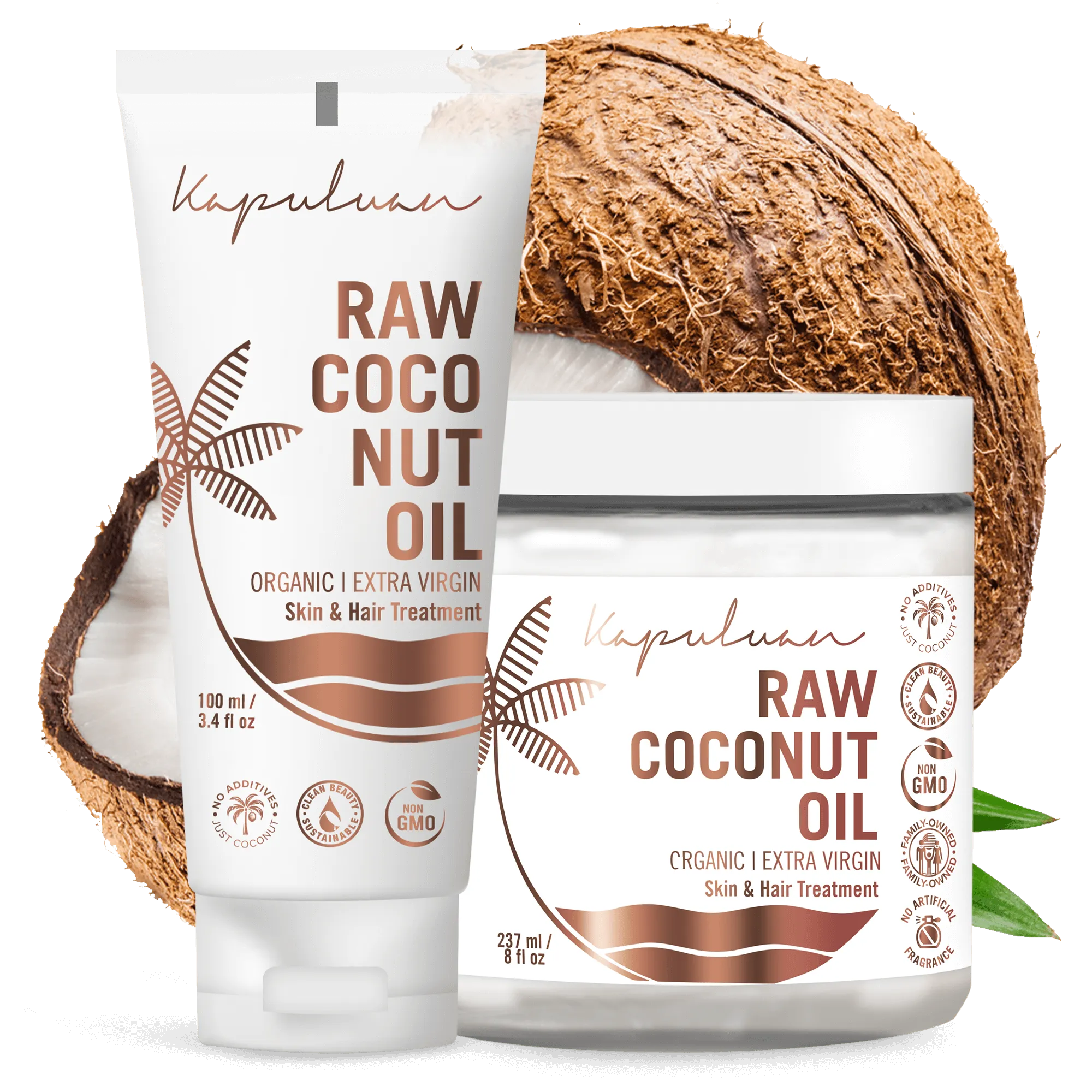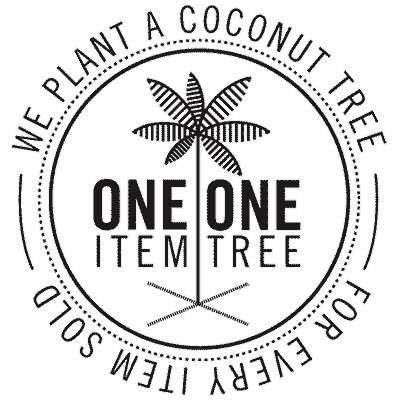Last Updated on July 4, 2024 by Kapuluan

This post comes to us from blog.FreePeople.com beauty contributor Allie White.
We all know coconut oil can do anything. It’s a natural miracle cure to pretty much all of your problems: in the bathroom (dry hair to overactive skin to teeth whitening), the kitchen (sautéing to smoothies), the closet (stain remover), and even the bedroom.
And while you know what essential product to shop for, things get a little complicated when deciphering the coconut oil label.
Over the last few years, coconut oil has exploded in popularity and can be found anywhere you’d shop for food staples. The wide availability is excellent, but how do you know you’re getting a quality product? What precisely should you look for on the label when purchasing coconut oil? How do you separate the all-stars from the imposters?
To help us navigate this wild world, we turned to Kapuluan, some of the finest coconut oil. If anyone knows coconuts, it’s Kapuluan. Here’s what to look for when shopping for coconut oil.
First and foremost…
If possible, look into where and how the coconuts are harvested. According to Kapuluan, most coconut farmers around the world are severely exploited. “[A large majority] of the coconut farmer population lives in extreme poverty, making less than $2 per day.” So if you find a brand doing its part to give back to the community where its coconuts are harvested, that’s a good sign.
The most important thing to look for is “unrefined” or “raw” on the coconut oil label. This means the oil is made from fresh, raw coconut meat. A jar with these descriptors signifies that no chemicals or heat have been used to refine the oil, which means more of the good stuff that makes coconut oil so powerful is still around.
Think about it this way: When you heat up or cook fresh broccoli, you break down the composition; the cooked version doesn’t contain as many nutrients as the raw vegetable. It’s the same thing with coconut oil.
“If people are using coconut oil that is not [raw], there’s practically no point in even using it,” a statement from Kapuluan. “[You’re] not getting all the nutrients that make coconut oil beneficial.” Plus, non-raw versions will have a shorter shelf life and smell stronger.

The word “refined” means the coconut oil you’re holding was made from copra, aka old, rotten, dried coconuts that have been left to bake in the sun, then refined and deodorized to be sold.
Not only does this mean you’re getting a subpar and not-all-that-natural product — the chemicals needed to deodorize and bleach rotten coconuts are pretty strong — but copra is a “dirty, labor-intensive method” for Kapuluan. “It’s a rotten, dirty product for the people making it and the planet. And it’s not something you want to be consuming or putting on your skin.”
Anything labeled “organic” implies the coconuts were grown without pesticides or chemicals, which is a plus. However, some brands that use coconuts grown in remote locations don’t go through the USDA organic certification process. This is where a quick Google search can come in handy.
Sure, you’re used to buying olive oil based on these words, but neither term holds much weight when it comes to coconut oil. Kapuluan mentioned they’re just marketing terms that “don’t mean anything.”
You’ve made it this far; only one more thing to decipher: cold pressed vs. expeller pressed. The basic gist is that cold-pressed coconut oil is fresher, cleaner, and more nutrient-rich, as it’s made from coconut flakes that were dried at a low temperature before becoming oil. In addition, there’s no heat involved, so there’s no powerful outside force to kill off the beneficial nutrients.
Expeller-pressed means the coconut oil is extracted via a machine at a higher temperature than cold-pressed oil. Because of this higher temperature, it’s not as nutrient-dense and has a nutty flavor and smell.
If you’re holding a jar that doesn’t use either of these terms and instead says it’s been processed…run. It’s probably made from copra, and as Kapuluan said, it isn’t something you want anywhere near your body.
Concluding the Coconut
If you’re buying coconut oil for self-care, your best bet is to opt for something raw, cold-pressed, and organic. This combination is the best for you, contains the most beneficial ingredients, and harms the harvest area the least.
If you’re looking for something to cook with, stick to raw and organic coconut oil, but expeller-pressed is OK, as this process leads to a higher smoke point.
Anything else on that label? Any phrases or terms you don’t understand or aren’t listed above? Do not pass go, do not collect $200, and do not put that coconut oil anywhere near your skin, mouth, or food.



